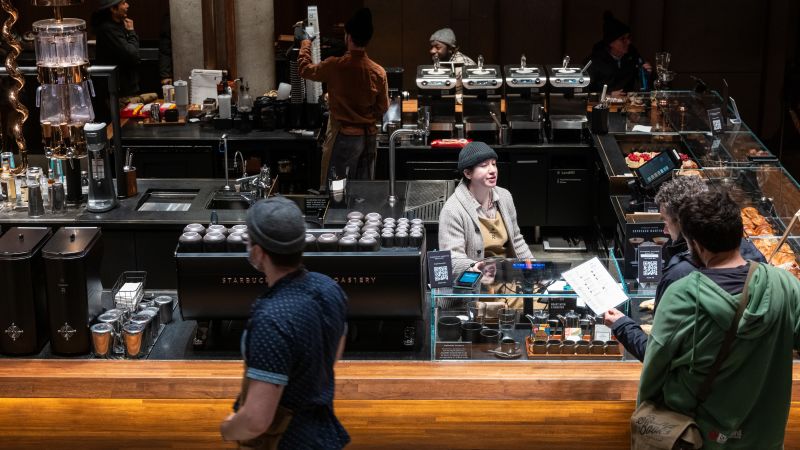The restaurant industry in the United States is facing challenges as consumers are increasingly choosing to dine at home to save money amidst rising inflation. Starbucks reported a decline in same-store sales, attributed to customers spending more cautiously and less frequently. Companies are recognizing the need to step up their efforts to attract customers, with Starbucks introducing new customization options and upgrades to its mobile app. This shift in consumer behavior is evident in McDonald’s balance sheet, with global same-store sales growth slowing down as consumers opt for home-cooked meals.
Lower-income consumers are tightening their budgets, with companies like Olive Garden-parent Darden Restaurants experiencing a decrease in sales from households with incomes below a certain threshold. On the other hand, higher-income customers continue to spend, supporting the economy. The ongoing economic uncertainty is impacting consumer behavior, with companies adjusting their strategies to adapt to changing spending patterns.
In a separate development, Scott Sheffield, the former CEO of Pioneer Natural Resources, was accused of attempting to collude with OPEC to inflate oil prices. The Federal Trade Commission alleges that Sheffield exchanged messages with OPEC officials to align oil production in the Permian Basin in Texas with that of OPEC and OPEC+. This collusion is seen as an attempt to boost profits at the expense of US households and businesses, going against the principles of the free market in the US oil industry.
The US job market has been performing well, with economists noting that it may be one of the strongest periods in history. The upcoming April jobs report is expected to show continued growth in employment, although there may be a slight softening from the strong gains seen in the first quarter. Economic factors such as high interest rates are impacting the labor market, with economists predicting a gradual slowdown in job growth until rates start to decrease. Despite this, the forecast for April’s report is positive, with expectations of job gains and a stable unemployment rate.
Overall, the economic landscape in the United States is characterized by shifting consumer behavior, challenges in the restaurant industry, allegations of collusion in the oil market, and continued growth in the job market. Companies are adapting their strategies to attract customers amidst changing spending patterns, while economic factors such as inflation and high interest rates are impacting consumer confidence and job growth. The upcoming jobs report will provide further insights into the state of the US economy and the resilience of the job market amidst ongoing challenges.













